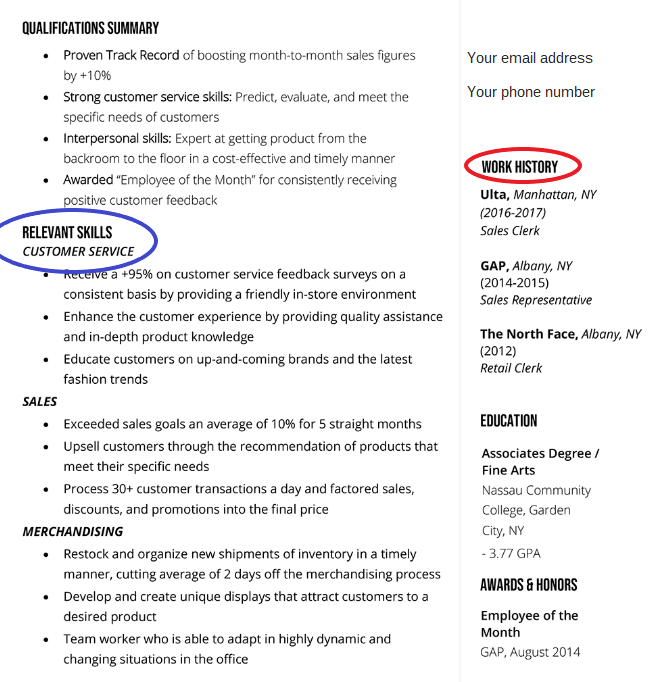How can you explain an inconsistency on your resume to potential employers?
According to a 2016 survey, more than 10% of job applicants have an anomaly (an inconsistency or irregularity) on their resume.
Anomalies can be:
a lack of relevant experiences;
taking time off from work to be a parent or caregiver;
not graduating;
taking time off to care for your own mental health;
or losing your job.
If one or more of these apply to you, don't worry - it won't disqualify you from the job. You just need to be able to explain it in your resume, cover letter, or in the interview.
Updating Your Resume
Think about what jobs or skills you actually need to list.
Focus on those which matter to the job you are applying for. You don't need to include every job you ever had.
Include any part-time, temporary, or volunteer work. It should be related to the job you are applying for.
Format the resume to focus on years, not months, to minimize the gap.
Here's an example:
Coach, 2016-2018 (not August 2016-March 2018)
Fitness Trainer, 2018-2019 (not June 2018-May 2019)
Instructor, 2020 (not April 2020-present)
Create A Functional Resume
A functional resume focuses on job tasks and skills instead of the time spent at each job. Here's an example. Notice how work history is kept as a short list of job titles.

Quiz
What type of resume is better at minimizing any time gaps in your work history?
How To Explain An Inconsistency During An Interview
If you have a time gap between your jobs, don't just ignore it or hope the interviewer ignores it. Be ready to talk about it.
Why did you take time off of work?
Possible Answer: From 2013-2019, I took time off to raise my child and manage my household. I had the following responsibilities...
Did you graduate from college?
Possible Answer: No, however, I spent a year traveling and learned more about South American cultures. I learned that...
Let the interviewer know that you are ready to return to work.
Example: I am excited to re-enter the workforce as a digital copy editor.
Have an explanation for the skills you learned while you were not employed.
Example: After being laid off, I took community college courses in HVAC repair.
Quiz
After taking time off to raise their child, what skill or skills could a parent highlight in an interview?
Include Personal Development Outside Of Work
While you may have a gap in your employment history, you can still include important skills that you learned or practiced during that time.
For instance, you can explain in a cover letter or say in an interview...
I downloaded a trial version of [industry or job relevant software] to update my [specific skills].
I volunteered my time to teach senior citizens how to [job-related skill].
I took an online course in [job-related subject].
Take Action
Now that you know how to explain an anomaly on your application, resume, or in your interview, go out there and search for the job you want.
Don't let a job loss, time spent not working, or anything else stop you from applying for a job you want.
Your feedback matters to us.
This Byte helped me better understand the topic.
